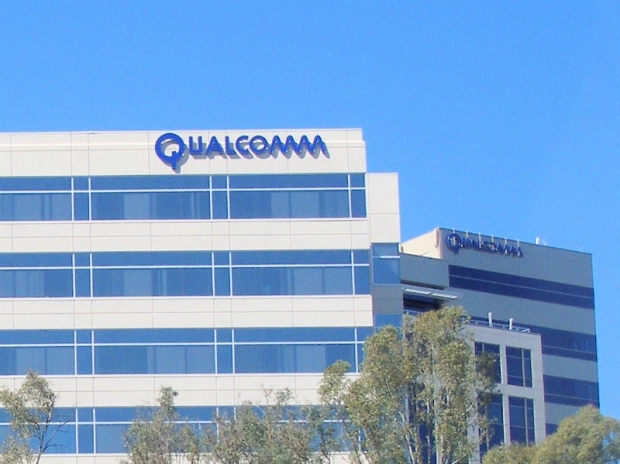The reason is simple, most US carriers wants to play the Gigabit LTE card for the holiday season, especially in the US and, guess what, Intel’s XMM 7480 doesn’t support it.
Fudzilla has talked a lot about the fact that Intel will get inside of the iPhone business and this has happened with the debut of the iPhone 7 / 7 Plus using Intel’s XMM 7360 modem. At a later date, as we expected, it was revealed that Intel has an inferior modem people to Qualcomm’s solution, but this was hardly a surprise.
Intel confirmed to Fudzilla that Intel plans to ship 7480 this year and this is the most likely candidate for the modem inside of the next gen iPhone. This is the one that everyone calls the iPhone 8 (iPhone 7S) and if all goes well, it should launch in September 2017.
Intel’s XMM 7480 modem doesn’t support GigabitLTE but it is Intel’s first modem to support TE-FDD, LTE-TDD, TD-SCDMA, and legacy 2G and 3G. The previous 7360 modem was missing the SCDMA support that is crucial for Verizon in the USA and China Telekom in China.
So far, all the US carriers plan to launch the Gigabit LTE in the US. AT&T, T-Mobile, Sprint and Verizon plan to launch Gigabit LTE in selected markets before the end of the year. AT&T already launched GigabitLTE in late April it in Austin Texas.
Intel’s own staff at Mobile World Congress 2017 confirmed Fudzilla that Intel XMM 7560, Intel’s first Gigabit LTE modem won’t be launching in 2017 and that we can expect it next year.
If Apple wants to stay competitive in the US carriers to Samsung S7 / Note 8 and all the other high-end phones with Snapdragon 835 (Gigabit LTE capable Snapdragon X16 modem), it might have to use more Qualcomm modems than last year.
Apple used the common denominator strategy with the iPhone 7, crippling the modems' features and speed in order to match the capability of Intel based iPhones versus Qualcomm based iPhones.
To refresh your memory, the A1778 and A1784 iPhone models use a GSM-only Intel XMM7360 modem while the A1660 and 1661 iPhone models use a GSM/CDMA-compatible Qualcomm MDM9645M modem. The A1660 and 1661 iPhone is available in the United States, Puerto Rico, Hong Kong and China. You can get the A1660 on Sprint and Verizon or when you buy a locked AT&T phone at Best Buy.
The iPhone A1778 has no support for TD-SCDMA and CDMA EV-DO Rev. A bands and therefore, won’t work properly on CDMA networks like Sprint or Verizon. Most phones in the US from T-Mobile and AT&T use the Intel modem and come from the A1778 / A1784 family. Almost all of Europe and most of Asia use Intel modem iPhones too.
It will be up to Apple to decide if it plans to increase the market share of Gigabit LTE iPhones in the US. In case it makes this choice, it will increase the orders of Qualcomm modems for iPhones.
We do believe that marketing chaps at Samsung and the rest of the Android alliance will talk a lot about the importance of Gigabit LTE. Carriers wants to make the point that the average speed will increase for everyone at their network, making the operations slightly cheaper for them.
If you are one of the people who think that Apple is getting cold feet toward Qualcomm and will try to order less Qualcomm modems, think again. Intel still misses crucial features including the Gigabit LTE 4x4 DL-MIMO and 256QAM support and it will only match what Qualcomm has today in the course of 2018. The XMM 7580 has all these features including 225Mbps CAT 15 speed in the uplink and 1 Gbps CAT 16 in the downlink. Qualcomm can do 1.2Gbps with Snapdragon X20 and CAT 13, 150 Mbps uplink and will probably announce even faster solution in mid-2018. You can see the trend - Qualcomm is likely to stay ahead of competition (Intel) in the future too and let’s not forget that Qualcomm has been designing manufacturing modems for much longer than anyone else. Intel modem skills mostly come from 2011 acquisition of Infineon while CDMA capability comes from VIA, yes that PC chipset manufacturer from 15 years ago VIA.
Despite the licensing lawsuits between Apple and Qualcomm, these two companies have to work together and the whole licensing mess looks like a play between big players where one wants to pay less for the licenses. You can call this public negotiation if you want, where one player wants to pay less and one wants to prevent that and keep making the same.




